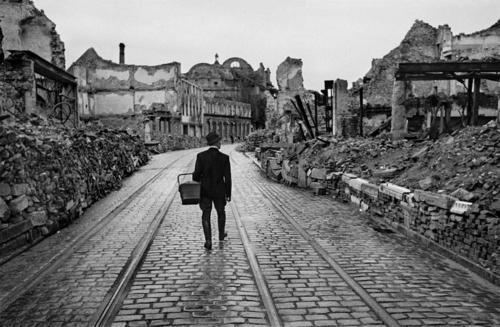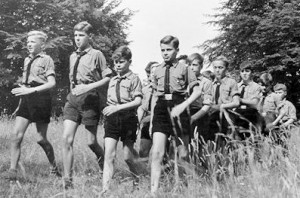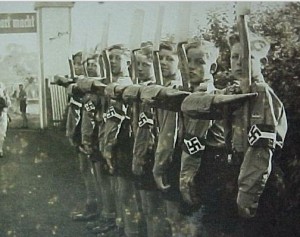By coincidence, because I don’t plan that well, the story of Janni Schenck ended and began almost exactly seventy-one years ago today. If he was fourteen then, he’s eighty-five now. Which is probably time to get something straightened out. It’s not his real name. I heard his story first-hand from him, but I never knew his name.

The key things in the Janni Schenck screenplay are true. There was a weapons bunker hidden outside a small village in Germany. People were bombed out of their homes by the USAAF and the RAF. Kids of thirteen had no choice when they were conscripted into the Hitler Youth.There was a key difference between being a member of the Hitler Youth and being a member of the Nazi Party.
There was an organisation called the Edelweiss Pirates. They loved Swing. They killed the mayor of Cologne before the Gestapo hunted them down. People loved Swing music. It was never illegal as such, but if you played too much of it then it was. There was German Swing, manufactured parodies of mainstream Swing, written and played by the Party and broadcast specifically so that UK and US troops would hear it. The lyrics were not encouraging. Except when they encouraged distrust and suspicion. They were quite good at that.
A soldier made a joke about Hitler and when his friend laughed they were both sentenced to death. As the sentence was about to be carried out, partisans attacked and they ran. When they stopped running one of them walked 700 km home to Bremen, lit by the fires of German cities. All of these things are true.
The more I talk to people who have talked to older people about these stories then the more I hear that the ending of Janni Schenck was the ending for many other people too.
In late April 1945 the SS came to the little village where Janni lived. They gathered up all the boys in the Hitler Youth and marched them to a small wood near the village. From the bunker they uncovered in the wood they issued the boys with brand new factory-fresh machine guns and rifles, grenades, bullet belts, helmets, knives, anything and everything that they could carry.
The SS told the boys that the Americans would be in the village within half an hour. They told the boys that the village had to be defended to the last bullet. For the Fatherland. For the Hitler Youth. For Germany. For the future. For civilisation.
They told the boys they had to go now. They left for Switzerland.
The boys carried their new weapons back down to the village. On the way they met their schoolmaster in the lane. He was the head of the Hitler Youth troop in the village.
He beat them up. He made them throw all their guns in the ditch and sent them home, crying.
The Americans arrived less than half an hour later. They were ready to shoot the entire village if anything had started. Thanks to an unknown man long ago, those boys lived for the future. For civilisation. For an unbelievably better Germany.
Not everybody followed orders, whatever the television tells you. Not everybody at all.
So happy anniversary, Janni, wherever you are. I wish I knew your name.



